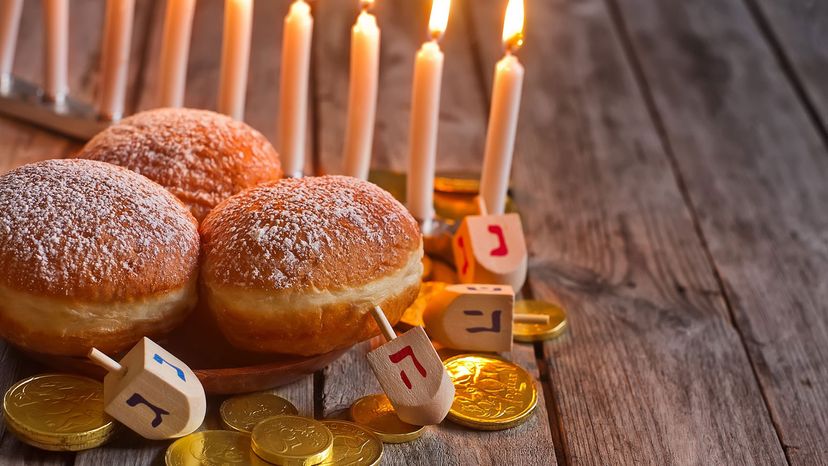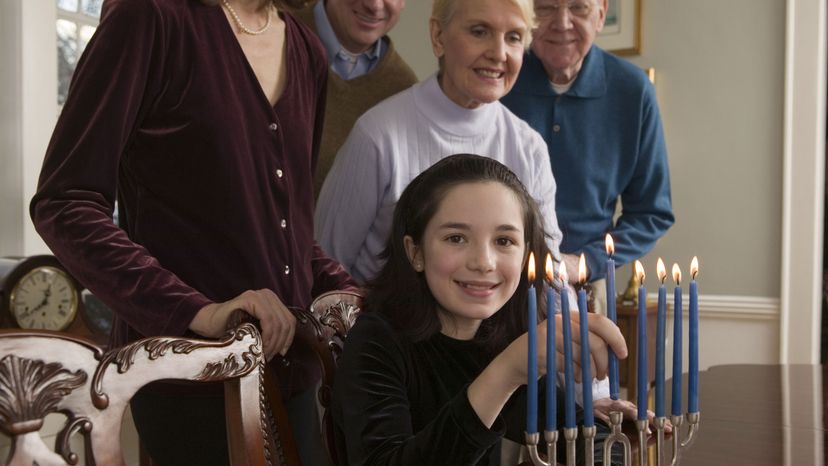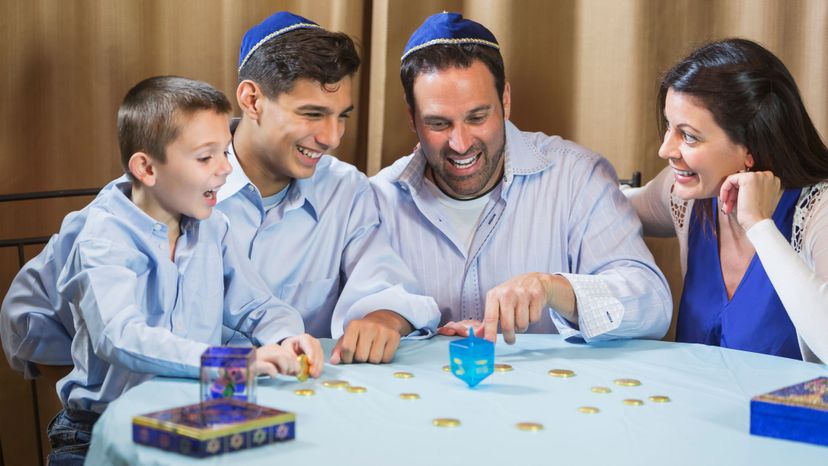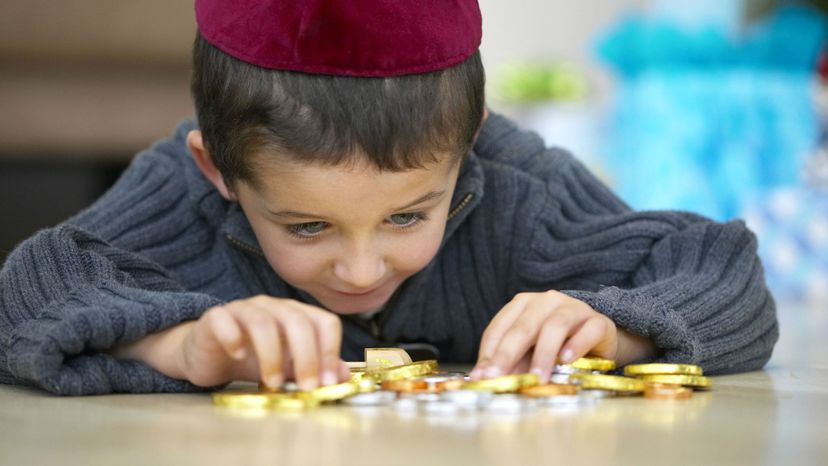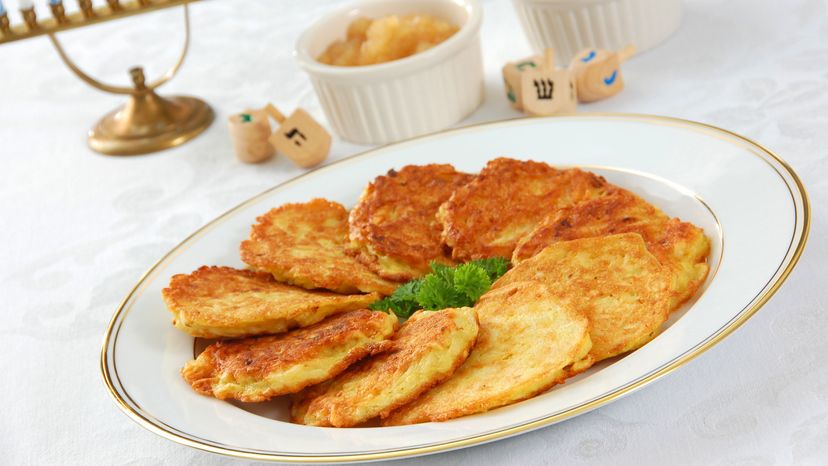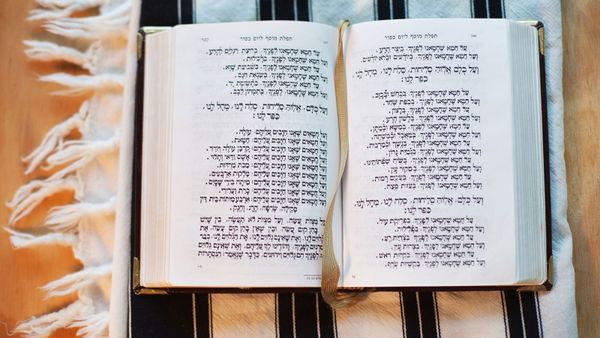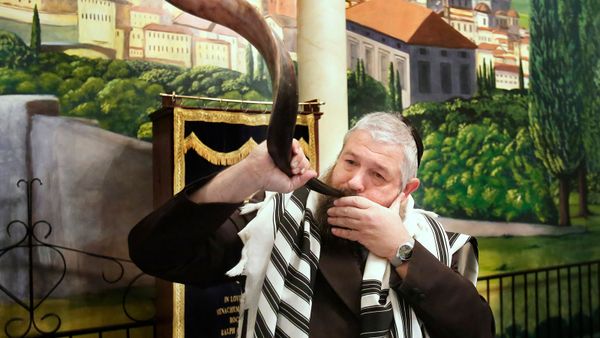Hanukkah is an eight-night celebration. The Hanukkah celebration includes lighting the candles of the Hanukiyah (in English-speaking countries this is often called a Menorah, which is the Hebrew word for a candelabra) on each day of the holiday, playing with the dreidel, eating latkes and exchanging Hanukkah gelt.
Like another famous winter-time holiday, Christmas, Hanukkah is about history. The celebration of Hanukkah is a commemoration of an event that happened more than 2,000 years ago.
In 167 B.C.E., the Syrian king Antiochus IV began to outlaw Jewish religious practices and forced Jews to adopt Greek rituals. His men took control of the Jews' Holy Temple in Jerusalem, looted it and erected an idol of a Greek god there. One Jewish family, the Hasmoneans (led by Mattityahu and his five sons), decided to take a stand against the persecution. The Greek forces arrived in the town of Modiin, near Jerusalem. It was here that after refusing to violate his own religion by praying to the Greek god Zeus, Mattityahu attacked the Greek soldiers.
This action began the Jewish rebellion. Mattityahu and his sons became known as the Maccabees, which means "men who are as strong as hammers" in Hebrew. The small army, led by Mattityahu's most famous son, Judah Maccabee, fought sizable Greek forces. In 165 B.C.E., the Maccabees were triumphant. On the 25th of the Hebrew month Kislev, the Maccabees reclaimed the Holy Temple.
They decided to rededicate the temple — the word "Hanukkah" means dedication. The Jewish army was unable to find enough oil to light the Menorah, or candle holder, to be used in the service. The Maccabees found only one bottle of oil, enough for only a single night. Miraculously, the oil lasted eight nights, giving the Jews time to produce more oil.
The holiday of Hanukkah commemorates this miracle. By lighting candles for eight nights, beginning every year on the 25th of Kislev (usually in December on the Western calendar, but not always), Jews celebrate the triumph of the Maccabees, the rededication of the Holy Temple and the miracle of the oil lasting for eight days.
